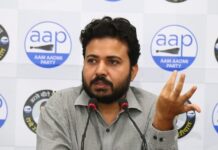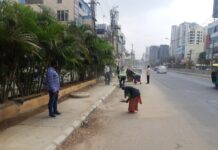New Delhi, The GST Council on Friday decided to set up a seven-member Group of Ministers (GoM) headed by Bihar Deputy Chief Minister Sushil Modi to look into Kerala’s demand for imposing an additional cess over GST to meet the financial requirements in case of a natural calamity.
The other members of the GoM include Himanta Biswa Sarma, T.M. Thomas Isaac, Sudhir Mungantiwar, Sashi Bhusan Behera, Manpreet Singh Badal and Prakash Pant, finance ministers of Assam, Kerala, Maharashtra, Odisha, Punjab and Uttarakhand, respectively.
The GoM, set up to examine the “modalities for revenue mobilisation in case of natural calamities and disasters”, would submit its recommendations by October 31 after which another meeting of the GST Council will be called to finalise the course of action.
Earlier, Union Finance Minister Arun Jaitley, after the GST Council meeting, said that the committee to consider Kerala’s proposal for imposition of cess for rehabilitation following a disaster would comprise members from the northeastern, hill and coastal states which are most vulnerable to natural calamities.
He said it was important to have a mature view on the issue instead of acting in haste as this would set a precedent for future natural calamities as well.
The Minister said that while there were various views among the council members, all states agreed that something must be done to address the devastating Kerala floods and similar calamities in future.
“One view expressed in the Council was ‘Must the entire burden be borne by the people of the state suffering from natural calamities?’. There was a counterview that this defies the one-nation one-tax principle,” Jaitley said.
He added another view was whether there should be an all-India levy and should it be confined only to some luxury and sin products or on all products.
“There was also a discussion on if the cess should be imposed in the case of all natural calamities or if there should be a distinction. For example, if one or two districts of a state are affected, should there be a levy in that case,” he said.
The Minister said there was a need to have best legal methodologies to address the issue while keeping the constitutional provisions in mind.
He said there was currently a provision to have earmarked funds for natural calamities at the state as well as the national level in the form of State Disaster Relief Fund (SDRF) and National Disaster Relief Fund (NDRF) which have nothing to do with taxes.
Jaitley said the GoM would also consider if the SDRF and NDRF mechanism were sufficient to address the issue or if more was needed to be done.
“I have been a part of this for five years. Wherever the calamities have happened, the NDRF fund over and above the SDRF has been sufficient in servicing the requirements of the state,” Jaitley added.









